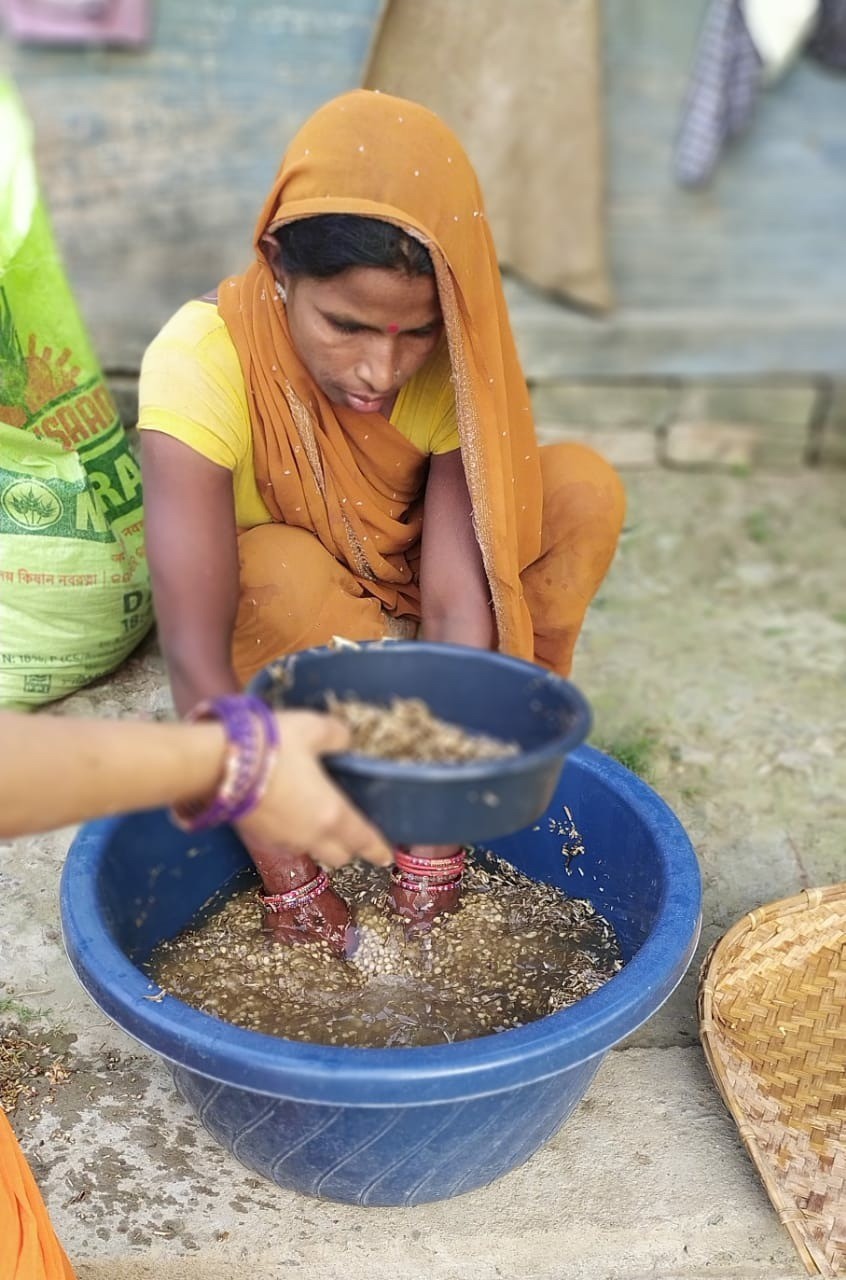INDIA. Bihar. Sharad Nirala, 26-year-old native of Begusarai, (Hasanpur Bagar), returned home after announcement of the nation-wide lockdown in India. “I, like countless others,” said Nirala, “returned to my native village during the beginning of the [Coronavirus] pandemic. As the pandemic swept across the country, the particularly worsening situation in rural India caught [my] attention.”
Grassroots company aims to curb malnutrition and boost local economy. After a few months of consultation with nutritionists, agricultural scientists, doctors and naturopathic experts, Nirala’s team created a product to curb malnutrition. “Scientific research was brought together with the traditional wisdom of villagers, [and] IndiJan came into existence,” Nirala told Transcontinental Times.
IndiJan is a grassroots company that oversees and manages the production, packaging, and distribution of 15 local grains, pulses, and herbs to produce a highly nutritious atta (flour), far superior to the traditional wheat flour that is a staple of the local diet.
“IndiJan has two clearly defined goals,” Nirala said. “Firstly, to create gainful employments for the rural population near their homes, eliminating the need for migrating to far-flung areas. This becomes all the more important when we consider that the majority of the population in India lives in rural areas. Secondly, to raise the abysmally low nutritional standards of the people…[as] most of the chronic diseases are the result of eating patterns.”
Not only does IndiJan seek to ameliorate malnutrition, Nirala aims to “steer the evolution of food patterns in a way that will improve the immune system and protect [people] from not only current illnesses but also future diseases.” Nirala continued, “There are herbs that traditionally deal with myriad health problems from high blood pressure to cancer. It took [the team] around 3-4 months to develop a product that aligned to ICMR and WHO recommendations.”
Building a powerful network. Nirala’s coursework did not necessarily prepare him for undertaking such an initiative, with degrees in History and Public Administration. However, the professors he had and the network he built became invaluable as he searched for solutions to a problem he identified and felt compelled to address immediately.
Even though this is Nirala’s first agricultural undertaking, he is no stranger to tackling difficult social challenges. During college, he was the president of a social work volunteer organization at Delhi University, and after graduation, he founded The Igniters (www.theigniters.in) to promote “21st century skills like creativity and critical thinking through art.”
Committed to building a sustainable and independent economy, IndiJan employs local villagers in every aspect of the business, from growing the grains and pulses to packaging and distribution. “The procured raw materials are processed and packaged by a labour intensive process at processing centres. The final product is then sold in the community without any intermediary, engaging the people of [the] community themselves,” Nirala said.

As most sectors across India were facing economic hardship, Nirala easily procured investments in his project. “Friends and professors contributed about 5 lakhs. They didn’t need much convincing because they had already worked with me. And they trust me. But a larger amount of about 7-8 lakhs I secured from 2 investors [and an Ayurvedic doctor] who came onboard after seeing the product and the credibility of the team that developed it.”
Nirala’s company is a remarkable example of innovation during the global pandemic. “In the backdrop of this grim situation, I realised that the only way of tackling these problems was to create a sustainable ecosystem that not only created employment but also made nutritious food available at affordable prices.”




Inspirational story! More power to you IndiJan team.